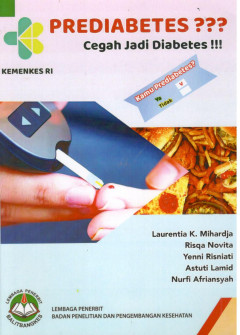Ditapis dengan
# Debug Box
/var/www/perpustakaan972/lib/SearchEngine/DefaultEngine.php:610 "Search Engine Debug 🔎 🪲"
Engine Type ⚙️: "SLiMS\SearchEngine\DefaultEngine"
SQL ⚙️: array:2 [ "count" => "select count(distinct b.biblio_id) from biblio as b left join mst_publisher as mp on b.publisher_id=mp.publisher_id left join mst_place as mpl on b.publish_place_id=mpl.place_id where b.opac_hide=0 and (b.biblio_id in(select ba.biblio_id from biblio_author as ba left join mst_author as ma on ba.author_id=ma.author_id where ma.author_name like ?))" "query" => "select b.biblio_id, b.title, b.image, b.isbn_issn, b.publish_year, mp.publisher_name as `publisher`, mpl.place_name as `publish_place`, b.labels, b.input_date, b.edition, b.collation, b.series_title, b.call_number from biblio as b left join mst_publisher as mp on b.publisher_id=mp.publisher_id left join mst_place as mpl on b.publish_place_id=mpl.place_id where b.opac_hide=0 and (b.biblio_id in(select ba.biblio_id from biblio_author as ba left join mst_author as ma on ba.author_id=ma.author_id where ma.author_name like ?)) order by b.last_update desc limit 10 offset 0" ]
Bind Value ⚒️: array:1 [ 0 => "%Yenni Risniati%" ]

Prediabetes ??? Cegah jadi Diabetes !!!
- Edisi
- -
- ISBN/ISSN
- 978-602-373-183-1
- Deskripsi Fisik
- x, 63 hlm. : ilus.; 21 cm
- Judul Seri
- -
- No. Panggil
- WK 810 LAU 2021
- Edisi
- -
- ISBN/ISSN
- 978-602-373-183-1
- Deskripsi Fisik
- x, 63 hlm. : ilus.; 21 cm
- Judul Seri
- -
- No. Panggil
- WK 810 LAU 2021

Efikasi dan Keamanan Dihidroartemisinin-Piperakuin pada Penderita Plasmodium …
This study is part of the study with title "Monitoring drug resistance in subjects with P. falciparum and P.vivax malaria in Kalimantan and Sulawesi, Indonesia" which the objective to assess the efficacy and safety of Dihydroartemisinin - Piperaquine (DHP) in patients with malaria vivax in Kalimantan and Sulawesi. The design of study was a cross-sectional study and prospective evaluation of 87 …
- Edisi
- -
- ISBN/ISSN
- 0853-9987
- Deskripsi Fisik
- 9p.
- Judul Seri
- -
- No. Panggil
- Media Penelitian dan Pengembangan Kesehatan, 22 (2

Hubungan Kepadatan Parasit dengan Manifestasi Klinis pada Malaria Plasmodium …
Malaria is still a public health problem in Indonesia. The clinical manifestation of malaria is varied, and many factors may influence its clinical manifestation. Despite the species of malaria, density of parasitemia is known related to the severity or malignancy of malaria. It is worth to analyse the clinical and laboratory data of malaria cases in monitoring dihydroartemisinin-piperaquine (D…
- Edisi
- -
- ISBN/ISSN
- 0853-9987
- Deskripsi Fisik
- 7p.
- Judul Seri
- -
- No. Panggil
- Media Penelitian dan Pengembangan Kesehatan ;21(3)

Efikasi dan Keamanan Dihidroartemisinin-Piperakuin (DHP) pada Penderita Malar…
Since 2008, Dihydroartemisinin-Piperaquine (DHP) has been used as the first-line drug for treatment of falciparum malaria in Papua, which gradually will also be used in other endemic areas. The objective of the study was to determine the safety and efficacy of DHP. Patients with uncomplicated malaria due to Plasmodium falciparum were enrolled and treated with supervised DHP (arterakin ®, no. …
- Edisi
- -
- ISBN/ISSN
- 0853-9987
- Deskripsi Fisik
- -
- Judul Seri
- -
- No. Panggil
- Media Penelitian dan Pengembangan Kesehatan Vol.21

Leukopenia sebagai Prediktor Terjadinya Sindrom Syok Dengue pada Anak dengan …
The development of DHF patient usually assessed base on clinical condition, platelet count and haematocrit value as the DSS indicators. While leukocyte count is irrespective though leucopenia is common in viral infection. Therefore, further analysis was run to determine whether leucopenia could be as a predictor of DSS This study was a retrospective study with a case control (1:2) design usi…
- Edisi
- -
- ISBN/ISSN
- 0853-9987
- Deskripsi Fisik
- 7p.
- Judul Seri
- -
- No. Panggil
- Media Penelitian dan Pengembangan Kesehatan;21(3)2

Respon Klinis dan Parasitologis Dihidroartemisinin - Piperakuin pada Subyek M…
Background: Clinical and parasitological response of malaria treatment on day 3 follow-up (D3) is a crucial condition to predict the successful of treatment. D3 is a period time that Early Treatment Failure may happen which may cause severe or complicated malaria. Moreover, if the asexual parasitemia is still detected more than 10% study subjects, it is assumed parasites resistance against arte…
- Edisi
- -
- ISBN/ISSN
- 0853-9987
- Deskripsi Fisik
- 8p.
- Judul Seri
- -
- No. Panggil
- Media Penelitian dan Pengembangan Kesehatan ;2194)

Algoritma klinis diagnosis DB dan DBD di Indonesia
- Edisi
- -
- ISBN/ISSN
- -
- Deskripsi Fisik
- 56 p.
- Judul Seri
- -
- No. Panggil
- PS2 24
- Edisi
- -
- ISBN/ISSN
- -
- Deskripsi Fisik
- 56 p.
- Judul Seri
- -
- No. Panggil
- PS2 24
 Karya Umum
Karya Umum  Filsafat
Filsafat  Agama
Agama  Ilmu-ilmu Sosial
Ilmu-ilmu Sosial  Bahasa
Bahasa  Ilmu-ilmu Murni
Ilmu-ilmu Murni  Ilmu-ilmu Terapan
Ilmu-ilmu Terapan  Kesenian, Hiburan, dan Olahraga
Kesenian, Hiburan, dan Olahraga  Kesusastraan
Kesusastraan  Geografi dan Sejarah
Geografi dan Sejarah